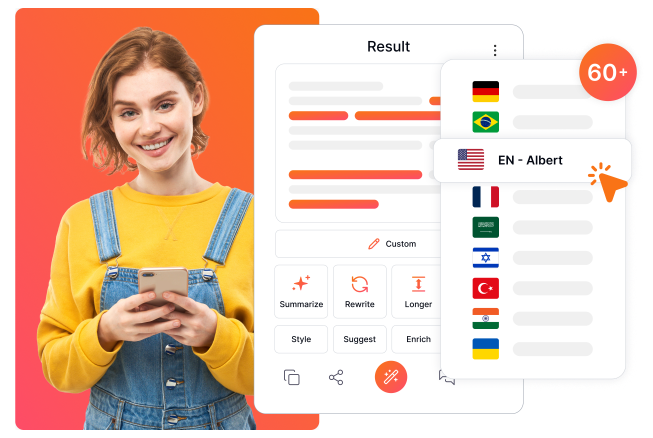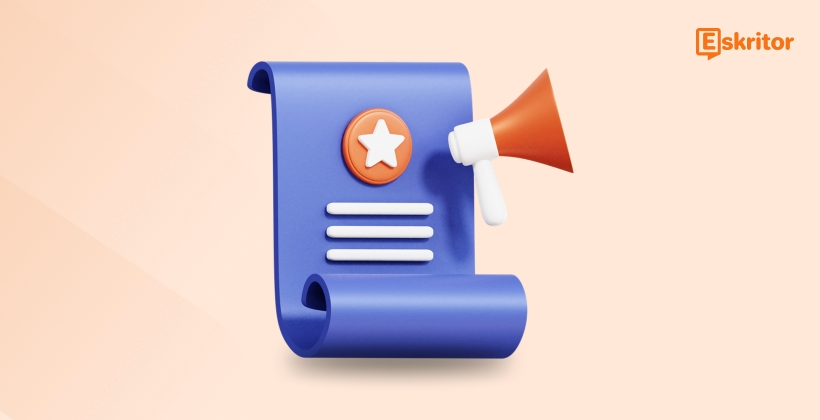The Role of AI in Modern Editing Practices
The Role of AI in Modern Editing Practices
Blog Article
How AI Writers Are Transforming Content Creation
Artificial intelligence (AI) publishing technology has evolved quickly in the last decade, reshaping the way we create and talk with prepared content. From syntax correction resources to AI-generated novels, the options seem limitless. But where exactly is this engineering heading? Let's explore the improvements, issues, and possible future of AI Editing.

How AI Writing Technology Operates Nowadays
At their key, AI writing engineering depends on Normal Language Handling (NLP) and machine learning. These technologies help models to understand, create, and increase human language. Methods available today excel at projects like:
1. Content Development
AI has achieved a point where it can create complete blog posts, social networking sayings, and also media articles. Some versions can handle mimicking individual publishing types therefore efficiently that unique between AI- and human-written material is now increasingly difficult.
2. Syntax and Style Recommendation
AI-powered publishing assistants don't just check for syntax and punctuation problems; they also give suggestions to improve tone, clarity, and sentence structure, creating complicated writing accessible to a broad audience.
3. Sentiment Evaluation
AI may evaluate the psychological tone of an item, allowing businesses to examine how their communications will resonate with readers. That is especially of use in marketing and customer interaction.
The Current Styles in AI Publishing Engineering
A few tendencies are shaping another stage of AI-powered writing tools:
• Personalization
AI writing engineering is increasingly capable of tailoring material to specific preferences. Types may adapt to a user's publishing design, ensuring the productivity feels authentic.
• Multilingual Features
Several AI resources are increasing their international reach by offering increased translation characteristics and help for multiple languages.
• Increased Research Functions
AI methods today possess the capacity to analyze huge amounts of information and offer fact-checked, well-researched publishing in seconds, simplifying the process for specialists in industries like law, finance, and journalism.
What the Potential Supports for AI Publishing Technology
1. Improved Imagination
While current AI is good at generating content, its imagination continues to be restricted to designs within its teaching data. Future AI is not only expected to aid but to create original, useful performs that problem human imagination.
2. Easy Relationship
Imagine an AI that performs along side you in real-time, performing your sentences, conducting stay edits, and also brainstorming ideas. AI writing tools may possibly soon become co-authors, allowing imagination to movement uninterrupted.
3. Moral and Accessible Style
With growing concern about plagiarism, misinformation, and prejudice, developers will work toward more transparent AI teaching techniques and honest implementation. Future tools will likely present more extensive citations and procedures to ensure accountability.
Issues and Concerns
The evolution of AI publishing technology isn't without hurdles, including:
• Honest Dilemmas

Who possesses material produced by AI? How do we guarantee AI-generated content is not scattering misinformation? These debates remain unresolved.
• Human-AI Harmony
Will AI match individual creativity or completely replace specific tasks? Several authors and musicians bother about their relevance in a AI-driven world.
• Availability Separate
Not all agencies or parts have identical use of cutting-edge AI tools, increasing questions about the affect with this technology on global inequality.
Changing the Way We Write
AI publishing technology continues to be in its infancy compared to its potential. Whether you're students creating documents, a material marketer targeting unique readers, or perhaps a novelist seeking inspiration, AI resources will continue steadily to revolutionize the writing process. The next decade promises breakthroughs that combination human ingenuity with machine intelligence, making a future where publishing is better, accessible, and impactful than ever before.
Report this page